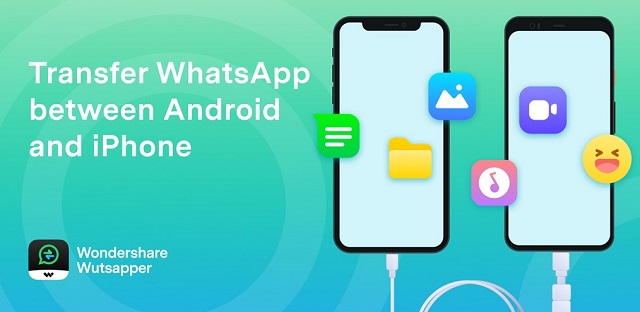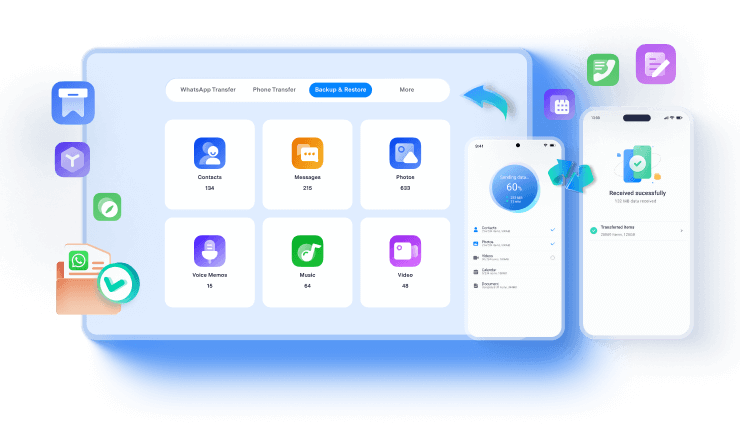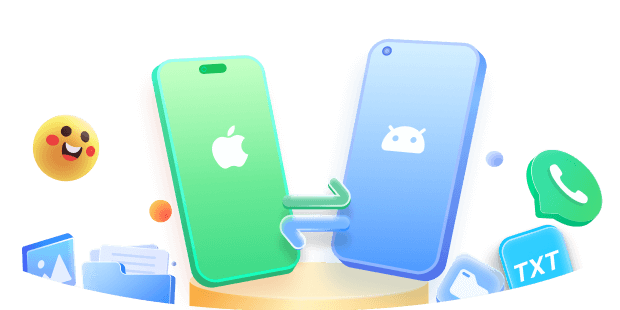On the 28th of January, nations all over the planet observe Data Privacy Day. Data Privacy Day emphasizes the significance of data security and privacy. Data Privacy Day is a chance to feature main points of interest, the job of our Govt., and the assets we have created for people, organizations, and institutions to develop familiarity with data privacy solutions.
To be more precise:
Our data is gathered and utilized through different media sources and for a considerable length of time. It gets transferred lawfully and illicitly. Because of the web, plenty of individual data is transferred to other people, and personal data privacy gets wasted. While the data might be out there because of our ignorance or privacy infringement, there are steps you can take to ensure yourself.
Part 1. What is Data Privacy Day?
Data Privacy Day is a worldwide work that helps you know the significance of personal data privacy, features simple methods for securing individual data, and reminds people and associations that privacy is for everybody. Every company and institute shares the obligation of being reliable stewards of private data.
The Data Protection Day honors Convention 108, held on 28th January 1981, the first-ever international treaty signed regarding the data protection policy.
What's more?
Data Privacy Day helps spread knowledge about internet-based privacy and instructs you on the best way to deal with your data and keep it secure. Data Privacy Week likewise urges institutions and companies to regard data and be more precise in how they gather and use client data. In the UK, there are certain EU general data protection regulations(GDPR) issued by GDPR data protection for companies that possess personal data to ensure data privacy.

What Does Data Privacy Mean?
Data privacy, by and large, means the capacity of an individual to decide their data usage on the web. It includes when, how, and what kind of private data about them is imparted to or transmitted to other people. The individual data can be one's name, IP address, contact, picture, or behavior on the web.
As Internet utilization has expanded throughout the long term, so has the significance of data privacy. Sites, applications, and web-based media frequently gather and store individual information about clients to offer types of assistance. A few applications might surpass the limit and use client data, leaving them with less security than they believed. Other platforms may not put strong protection around the information they gather, which may bring about an information release that compromises client data privacy protection.
Part 2. Mobile Internet Usage Worldwide?
Cell phones have turned into a building block for many individuals. Across the globe, devices like Samsung, Apple, Huawei, Xiaomi, etc., cell phones, and tablets have advanced into fundamental instruments for data, communication, and fun. In 2020, a survey indicated that over 90% of the worldwide populace utilizes a cell phone to go online on the web. This number will increment later on, as cell phones are becoming more and more reasonable and accessible than at any other time in recent memory. That vertical pattern is especially noticeable in developing digital markets where mobile phones are the only method to go on the web.
Famous Activities among Mobile Users
Web-based media is possibly the most famous exercise among cell phone users worldwide. For more than ten years, social and messaging applications and photograph and video-sharing platforms have been among the main drivers of mobile users worldwide. In 2019, the social network usage rate overall remained at 42%. This number isn't surprising because of the free mobile services in many locales where there are no data protection companies and sufficient networking infrastructure with proper cyber security and data protection.

Want to know the best part?
WhatsApp positions first among the most famous mobile application online. And, with more than 2.7 billion dynamic users, Facebook stays the top social application worldwide.
What are Web-Based/Online Internet Threats?
Web-based dangers, or online threats, are a variety of moves that might cause a bothersome occasion or activity through the internet. Web threats are made conceivable by end-user weaknesses, web engineers/developers, or the service providers themselves. The outcomes of a web threat might harm the users and organizations.
Internet-based dangers uncover you and your systems to get damaged online. A variety of hazards squeezes into this class, including notable dangers like phishing, viruses, and malware. Nonetheless, different dangers, as online data theft, can likewise be viewed as one of the web-based threats.
You might be wondering:
Internet threats are not only done online but include the internet, at some point, for causing the damage. While not all web dangers are made purposely, many are expected or have the potential to cause:
- Access denial to a PC as well as to the services provided online.
- Unapproved or undesirable passage into a private PC as well as the services offered online.
- Utilization of one's PC and using their web services without their consent or approval
- Uncovering private data without the owner's knowing about it, for example, photographs, account details, personal documentations, and delicate government data.
- Making some changes to a PC, along with its web services, without the knowledge of its user.
Part 3. How to Protect the Privacy of Mobile Phones Online?
Assuming somebody gets their hands on your smartphone or figures out how to hack it, they can utilize the data to humiliate you, take your cash, discover where you are, and more.
Here's what you can do:
- Use a Strong Passcode
That might sound self-evident, yet, as per a report, 64% of us don't utilize our passwords. Quite honestly, not using a password is an awful thought because you're giving over all your data to someone else.
While you set up your password, don't use your birthday or federal retirement number for your password and weak passwords like "1234." Never share your password with anybody, and try not to reuse passwords from different phones or applications.

- Limit What Your Apps Can Access
When you a new app, your telephone requests for some permissions. Commonly, applications need to get to things like your gallery, your camera, and possibly GPS. Some applications might require your contacts, your accounts, and so on. While it's hard to utilize a cell phone without giving admittance to a portion of these things, you shouldn't simply admit each application to your data. Numerous applications need more access than they need, which can disturb data protection authority. For example, does your calculator application have to know your GPS?
- Try not to Click on Suspicious Links
Due to the small screens of a mobile phone, individuals are more likely to tap on web links on their cellphone than on a PC. Try not to make it happen. Look more cautiously at the URL, particularly if they ask for your credentials to ensure mobile data privacy. Such links are generated to grab your bank credentials and take out your money without your consent. Most banks issue a notice, clarifying what they will and won't ask on their websites.
- Keep Your System Updated
System updates fix security and privacy issues found as they've tried the product out in reality. Staying up with the latest will mean you'll have the most recent bug fixes. So, it's a good idea to wait a little while before introducing the new software to see whether any issue exists with the new features.
- Use Security Applications
Both Spyware and Malware are turning into an inexorably big issue for mobile phones. They track your whereabouts, give your data to someone else, and can even call from your phone. To battle this and ensure privacy and data protection, download security apps for your privacy against any unbeknownst third-party attack.
- Remain Off of Open Wi-Fi Networks
Since mobile phones have become scaled-down PCs, you must keep away from open Wi-Fi networks as you would do on a computer. As you enter your credentials online, these IP addresses can communicate your Mastercard data and passwords without you, in any event, knowing it.
- Record Your IMEI
Each telephone has a fifteen digits International Mobile Equipment Identity (IMEI) number, which you can use to find your lost phone. You can find your IMEI number behind your phone's battery or in the settings. Having your phone's IMEI recorded can speed the method involved with finding your phone.
- Adhere to the App Store
Even if your smartphone permits you to download apps without their in-built store, you most likely shouldn't. Your phone's application store gives sensible security against viruses and has a data privacy statement. All their apps are exclusively tested for malware before they get added to the store, and they check them routinely to guarantee they are not harmful to your gadget. Outside sources, for example, download apps from unknown sources and can't give that equivalent sort of cybersecurity and data privacy. If you're an Android user, disable "Unknown Sources" from your setting.

Part 4: How to make your WhatsApp even more private and secure?
In the late spring of 2016, WhatsApp rolled out a phenomenal improvement. It started end-to-end encryption for every one of the billion or more individuals utilizing it and, in the process, turned into the world's best messaging app.
Even though WhatsApp's end-to-end encryption ensures to protect your documents, pictures, and calls - that doesn't mean it is private. Here are a few hints to make WhatsApp more private:
- Turn off Cloud Backup
WhatsApp permits you to backup your messages and data as a convenient method for moving all your data to another phone. These backups work by putting away your data in Google Drive or Apple's iCloud, contingent upon which OS you use.
WhatsApp needs you to backup your messages - if you don't have the setting turned on, it'll invite you to do so at regular intervals. Yet, here's why you shouldn't back everything up. The backups aren't encrypted, which implies: the messages can be accessed if they get to another person.
- Turn On Two-Factor Verification
You ought to involve two-factor verification on accounts that hold your data, for example, photographs and messages. The security technique includes adding a PIN to the sign-in process. Much of the time, this includes utilizing a security code produced by an application, a code sent through SMS or an actual security key. It is the most dependable method for securing your WhatsApp data privacy.

- Stop Individuals from Seeing your Information
There are a couple of steps you can take to restrict ways individuals from seeing your information:
- Under the group settings, there is an option of who can add you to a group, set to "Everyone" by default (which can be changed).
- You can likewise switch off who can see your profile picture, your "About" information, WhatsApp status, and "Last Seen," all from the settings.
- You can also turn off Notification Previews from your phone's settings.
Bonus: How to Transfer WhatsApp Data from Android to Apple without PC
If you have been using an Android phone for quite a long time and are looking to switch to an iPhone device, you will not be able to transfer your WhatsApp data. But worry not, it is now possible, thanks to the data transfer tool Mutsapper (Used name: Wutsapper) by Wondershare. Mutsapper is an expert tool that you can use to move your WhatsApp messages simply between Android and iOS without PC.

Although you can utilize this tool to move or back up WhatsApp messages on a PC, the best thing about it is that it doesn't need a PC. You can transfer your data from any Android gadget to an iPhone or iPad without much stress using its Android application.
Check our video tutorial below:
Conclusion
Data Privacy is a serious topic not on Data Privcy Day only but on your daily life. Using web-based applications can help you keep away threats and data leakage. Especially, your WhatsApp covers much of your personal privacy so it must be safe and secure. Hopefully, you can find reliable solutions here.Mutsapper can safeguard your WhatsApp data even in cross-system transfer, like switching from Android to iOS.
New Trendings
Top Stories
All Categories











Axel Nash
staff Editor